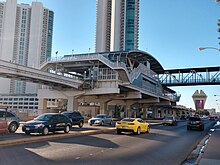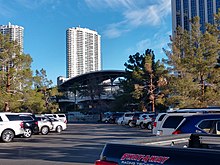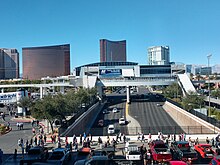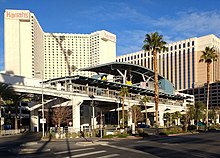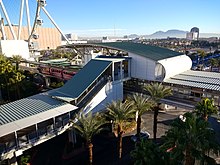Las Vegas Monorail
| Las Vegas Monorail | ||||||||||||||||||||||||||||||||||||||||||||||||||||||||||||||||||||||||||||||||||||||||||||||||||||||||||||||||||||||||||||||||||||||||||||||||||||||||||||||||||||||||
|---|---|---|---|---|---|---|---|---|---|---|---|---|---|---|---|---|---|---|---|---|---|---|---|---|---|---|---|---|---|---|---|---|---|---|---|---|---|---|---|---|---|---|---|---|---|---|---|---|---|---|---|---|---|---|---|---|---|---|---|---|---|---|---|---|---|---|---|---|---|---|---|---|---|---|---|---|---|---|---|---|---|---|---|---|---|---|---|---|---|---|---|---|---|---|---|---|---|---|---|---|---|---|---|---|---|---|---|---|---|---|---|---|---|---|---|---|---|---|---|---|---|---|---|---|---|---|---|---|---|---|---|---|---|---|---|---|---|---|---|---|---|---|---|---|---|---|---|---|---|---|---|---|---|---|---|---|---|---|---|---|---|---|---|---|---|---|---|---|
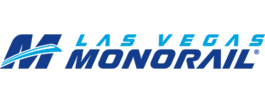 | ||||||||||||||||||||||||||||||||||||||||||||||||||||||||||||||||||||||||||||||||||||||||||||||||||||||||||||||||||||||||||||||||||||||||||||||||||||||||||||||||||||||||
 A Mark VI train of the Las Vegas Monorail | ||||||||||||||||||||||||||||||||||||||||||||||||||||||||||||||||||||||||||||||||||||||||||||||||||||||||||||||||||||||||||||||||||||||||||||||||||||||||||||||||||||||||
| Overview | ||||||||||||||||||||||||||||||||||||||||||||||||||||||||||||||||||||||||||||||||||||||||||||||||||||||||||||||||||||||||||||||||||||||||||||||||||||||||||||||||||||||||
| Status | Open[1] | |||||||||||||||||||||||||||||||||||||||||||||||||||||||||||||||||||||||||||||||||||||||||||||||||||||||||||||||||||||||||||||||||||||||||||||||||||||||||||||||||||||||
| Owner | Las Vegas Convention and Visitors Authority | |||||||||||||||||||||||||||||||||||||||||||||||||||||||||||||||||||||||||||||||||||||||||||||||||||||||||||||||||||||||||||||||||||||||||||||||||||||||||||||||||||||||
| Locale | Paradise and Winchester, Nevada | |||||||||||||||||||||||||||||||||||||||||||||||||||||||||||||||||||||||||||||||||||||||||||||||||||||||||||||||||||||||||||||||||||||||||||||||||||||||||||||||||||||||
| Termini | ||||||||||||||||||||||||||||||||||||||||||||||||||||||||||||||||||||||||||||||||||||||||||||||||||||||||||||||||||||||||||||||||||||||||||||||||||||||||||||||||||||||||
| Stations | 7 | |||||||||||||||||||||||||||||||||||||||||||||||||||||||||||||||||||||||||||||||||||||||||||||||||||||||||||||||||||||||||||||||||||||||||||||||||||||||||||||||||||||||
| Website | www.lvmonorail.com | |||||||||||||||||||||||||||||||||||||||||||||||||||||||||||||||||||||||||||||||||||||||||||||||||||||||||||||||||||||||||||||||||||||||||||||||||||||||||||||||||||||||
| Service | ||||||||||||||||||||||||||||||||||||||||||||||||||||||||||||||||||||||||||||||||||||||||||||||||||||||||||||||||||||||||||||||||||||||||||||||||||||||||||||||||||||||||
| Type | Straddle beam monorail | |||||||||||||||||||||||||||||||||||||||||||||||||||||||||||||||||||||||||||||||||||||||||||||||||||||||||||||||||||||||||||||||||||||||||||||||||||||||||||||||||||||||
| System | Alweg (inflated rubber tires on concrete guideway) | |||||||||||||||||||||||||||||||||||||||||||||||||||||||||||||||||||||||||||||||||||||||||||||||||||||||||||||||||||||||||||||||||||||||||||||||||||||||||||||||||||||||
| Operator(s) | Western Management Group | |||||||||||||||||||||||||||||||||||||||||||||||||||||||||||||||||||||||||||||||||||||||||||||||||||||||||||||||||||||||||||||||||||||||||||||||||||||||||||||||||||||||
| Rolling stock | 9 Bombardier Innovia Monorail 200 trains[2] | |||||||||||||||||||||||||||||||||||||||||||||||||||||||||||||||||||||||||||||||||||||||||||||||||||||||||||||||||||||||||||||||||||||||||||||||||||||||||||||||||||||||
| Daily ridership | 11,780 (2022)[3] | |||||||||||||||||||||||||||||||||||||||||||||||||||||||||||||||||||||||||||||||||||||||||||||||||||||||||||||||||||||||||||||||||||||||||||||||||||||||||||||||||||||||
| History | ||||||||||||||||||||||||||||||||||||||||||||||||||||||||||||||||||||||||||||||||||||||||||||||||||||||||||||||||||||||||||||||||||||||||||||||||||||||||||||||||||||||||
| Opened | 1995 (MGM Grand-Bally's Monorail) July 15, 2004 (Las Vegas Monorail) | |||||||||||||||||||||||||||||||||||||||||||||||||||||||||||||||||||||||||||||||||||||||||||||||||||||||||||||||||||||||||||||||||||||||||||||||||||||||||||||||||||||||
| Technical | ||||||||||||||||||||||||||||||||||||||||||||||||||||||||||||||||||||||||||||||||||||||||||||||||||||||||||||||||||||||||||||||||||||||||||||||||||||||||||||||||||||||||
| Line length | 3.9 mi (6.3 km) | |||||||||||||||||||||||||||||||||||||||||||||||||||||||||||||||||||||||||||||||||||||||||||||||||||||||||||||||||||||||||||||||||||||||||||||||||||||||||||||||||||||||
| Number of tracks | 2 | |||||||||||||||||||||||||||||||||||||||||||||||||||||||||||||||||||||||||||||||||||||||||||||||||||||||||||||||||||||||||||||||||||||||||||||||||||||||||||||||||||||||
| Character | Elevated | |||||||||||||||||||||||||||||||||||||||||||||||||||||||||||||||||||||||||||||||||||||||||||||||||||||||||||||||||||||||||||||||||||||||||||||||||||||||||||||||||||||||
| Minimum radius | < 60 m (200 ft)[4] | |||||||||||||||||||||||||||||||||||||||||||||||||||||||||||||||||||||||||||||||||||||||||||||||||||||||||||||||||||||||||||||||||||||||||||||||||||||||||||||||||||||||
| Electrification | 750 V DC third rail[4] | |||||||||||||||||||||||||||||||||||||||||||||||||||||||||||||||||||||||||||||||||||||||||||||||||||||||||||||||||||||||||||||||||||||||||||||||||||||||||||||||||||||||
| Operating speed | 50 mph (80 km/h) | |||||||||||||||||||||||||||||||||||||||||||||||||||||||||||||||||||||||||||||||||||||||||||||||||||||||||||||||||||||||||||||||||||||||||||||||||||||||||||||||||||||||
| Highest elevation | 60 ft (18 m) | |||||||||||||||||||||||||||||||||||||||||||||||||||||||||||||||||||||||||||||||||||||||||||||||||||||||||||||||||||||||||||||||||||||||||||||||||||||||||||||||||||||||
| ||||||||||||||||||||||||||||||||||||||||||||||||||||||||||||||||||||||||||||||||||||||||||||||||||||||||||||||||||||||||||||||||||||||||||||||||||||||||||||||||||||||||
The Las Vegas Monorail is a 3.9-mile (6.3 km) automated monorail mass transit system located adjacent to the Las Vegas Strip in Clark County, Nevada, United States. It connects several large casinos in the unincorporated communities of Paradise and Winchester, but does not enter the city of Las Vegas proper. Built at a cost of $650 million,[5] it was privately owned and operated by the Las Vegas Monorail Company until their 2020 bankruptcy. It was then sold to the Las Vegas Convention and Visitors Authority, a local government agency.[6] In 2022, total annual ridership was roughly 4.3 million, down from a pre-Great Recession peak of 7.9 million in 2007.[3][7] The monorail is a registered not-for-profit corporation, allowed under Nevada law since the monorail provides a public service. The State of Nevada assisted in bond financing, but no public money was used in construction.[8][9]
History
[edit]This section needs additional citations for verification. (January 2014) |
1995–2002: MGM Grand-Bally's Monorail
[edit]The Las Vegas Monorail began service as the MGM Grand-Bally's Monorail in 1995.[10] This system ran between the MGM Grand and Bally's hotels using two used Mark IV monorail trains that had operated on the Walt Disney World Monorail. Built through a partnership between the two hotels, the MGM-Bally's system's construction was contracted to VSL Corporation. The grand opening party for the monorail featured showgirls from Bally's famed show, Jubilee!, helping groups to the monorail. Characters from The Wizard of Oz greeted the groups on the MGM side. The two trains each ran back and forth on each beam, and were stored at a maintenance building near the Bally's station (this building still stands today, but it has been severed from the beam).[11]
2002–present: Las Vegas Monorail
[edit]In 2002, the original system was closed to begin its conversion to the current Las Vegas Monorail system. The beam was extended from Bally's station (now the Horseshoe & Paris station) north to the Sahara Hotel and Casino. The track was extended south beyond the MGM station to provide for track switching for the trains, as well as a starting point for a potential future southern extension. The original trains were replaced with nine new Bombardier Mark VI monorail trains.
During testing and commissioning, the monorail suffered several malfunctions that delayed the start of passenger service for almost a year. The most serious of these problems related to parts falling from the monorail to the ground under the tracks.[12] After many delays, the finished Las Vegas Monorail opened to the public on July 15, 2004 with the completion and testing of "Phase 1".
On September 8, 2004, more problems with falling parts led to the closing of the monorail for nearly four months. It reopened on December 24, 2004. A number of repairs were made to the monorail cars during this shutdown. Each time the monorail system required major engineering changes, it underwent a lengthy "commissioning" process to confirm the effectiveness and safety of the repairs. Officials reported that each day the monorail was down cost the system approximately $85,000 in lost fares.[13]
Transit Systems Management officials cited the successful handling of crowds during the 2005 Consumer Electronics Show as proof that the system could handle a major convention.[14]
On July 8, 2005, Transit Systems Management announced that it would shut down, turning over its responsibilities to the Las Vegas Monorail Company, the system operator. Curtis Myles, a former deputy general manager of the Regional Transportation Commission of Southern Nevada, became President of the Las Vegas Monorail Company.[15]
On November 1, 2005, the County Commission approved a study into the feasibility of an airport extension.
On January 13, 2010, the Las Vegas Monorail filed for Chapter 11 bankruptcy protection. The filing did not affect system operations and had no impact on the monorail's hours of operation or service to its customers.[16]
On March 11, 2011, the Sahara announced that it would close its doors May 16, 2011.[17] Closure of the Sahara has been cited as one of the significant reasons for ridership dropping in 2012.[18] In 2014, a new hotel casino, the SLS Las Vegas, took over the Sahara, and ridership increased from 2012 levels.
An infill station at the Sphere was planned but put on hold in 2020. A report in 2022 confirmed that talks about constructing the station wouldn't resume until after the venue's opening.[19]
The Las Vegas Monorail again filed for Chapter 11 bankruptcy protection in September 2020, amid the COVID-19 pandemic and in December a deal was finalized to transfer ownership to the Las Vegas Convention and Visitors Authority.[6][1]
Operations
[edit]The monorail (Phase 1 of the overall project) begins at the MGM Grand near the south end of The Strip, and runs roughly parallel to the Strip on its eastern side. The monorail passes next to the Convention Center and the Westgate Las Vegas, both with stations, before ending at the Sahara hotel at the north end of the Strip. The ride takes about fifteen minutes to travel its total distance of 3.9 miles (6.3 km).
The monorail generally runs behind the eastern Strip side hotels and casinos, a long block away from the Strip. Usually, it requires a walk through a casino to get to the Strip, emerging upon the Strip in front of the property. This lack of a direct presence on the Strip along with ticket prices has been a factor in the rather slow acceptance of the monorail.[12]
System name and sponsorship
[edit]
The Las Vegas Monorail was named the Robert N. Broadbent Las Vegas Monorail in honor of Robert N. Broadbent, whom Las Vegas officials credit with gaining the support from the public and officials needed to bring the monorail to fruition. Broadbent, a former Boulder City mayor, Clark County commissioner, assistant secretary of the United States Department of the Interior, and McCarran International Airport director, died in 2003, a few months before the system's scheduled opening. The Las Vegas Monorail Company is the company's official corporate name.[20]
The Las Vegas Monorail generates revenue from ticketed passengers and from corporate sponsors. Branding rights for the seven stations and the nine trains are available, and the sponsorship prices are in the millions of dollars. Hansens Beverage sponsored the first monorail train, featuring its Monster Energy drink.[21] Nextel Communications created a totally themed pavilion by branding the largest station, adjacent to the Las Vegas Convention Center.[22] Since the Sprint-Nextel merger in late 2005, Nextel Central was rebranded as Sprint Central. However, in late February 2008, the Sprint Nextel Corporation terminated its sponsorship contract.[citation needed]
Construction and planning
[edit]The Las Vegas Monorail was designed by Gensler of Nevada, engineered by Las Vegas-based Carter & Burgess (now Jacobs Engineering Group, Inc.) and constructed by Granite Construction, Inc. of Watsonville, California, one of the largest civil contractors in the United States.
The Las Vegas Monorail vehicles and signal systems were developed by Bombardier Transportation.[23] The technology for the monorail vehicles came directly from the well-tested monorail systems running in Walt Disney World. Bombardier constructed Mark VI Monorail trains for the Walt Disney World Monorail System and for Las Vegas.
Stations
[edit]Stations listed from north to south:
Trains
[edit]
The monorail uses nine fully automatic Bombardier MVI trains, each consisting of four cars. These are very similar to the six-car Mark VI monorails at Walt Disney World (which were operated by pilots until 2014). The guideway is built to the "ALWEG" track standard. For the first seven years, the line only ran as the MGM Shuttle, between MGM and Bally's stations. During this time, two ex-Walt Disney World Mark IV monorail trains were used.[24][25][26][27][28] Though the Las Vegas and related train equipment appear superficially similar to the original ALWEG design (as exemplified by the Seattle system), their suspension and propulsion systems differ substantially. A Seattle train may be walked end-to-end which is impossible on a Las Vegas or Florida train. The ALWEG Mark VI system used in Las Vegas Monorail consists of two inline large truck tires per car that support the load over the concrete guideway with a rectangular cross section and eight guide tires that straddle the guideway from both sides.[29] The total capacity of the four-car trains is roughly equivalent to two articulated buses at 80 seated and 160 standing passengers.[30] The maximum speed is 50 miles per hour (80 km/h), although that speed is only reached during one short straight segment of the line.
Extensions
[edit]This article needs to be updated. (March 2023) |
To Downtown Las Vegas
[edit]Phase 2, a 2.3-mile (3.7 km) long extension along Main Street to Downtown Las Vegas was planned, with new stations at the Stratosphere Hotel, Charleston Boulevard, Bonneville Avenue, and Main Street Station. Construction was planned to begin in 2005 with service starting in 2008. However, the anticipated funding from the federal government was not allocated in 2004, so the plans were put on hold. On January 27, 2005, the federal government announced that it would not provide money for the $400-million project.[citation needed]
The plan was to open the system in January 2004 and for it to cover its debts and operating expenses by attracting 19 to 20 million riders. Since the system was not only delayed in opening, but later shut down for four months, income was not as great as organizers had hoped. This reportedly is a contributing factor for the government's denial of Phase 2 funding.[citation needed]
Southern extension
[edit]Phase 2 was revised to instead extend the monorail system south from the MGM Grand Station to Harry Reid International Airport.[31] Providing monorail service to the airport has been an unpopular idea with limousine and taxicab operators in the city, as trips to and from the airport form a major portion of their business.[32] Several hotel and casino owners on the Strip supported the project, and were more supportive of an extension to the airport than one to downtown Las Vegas.[33]
On December 7, 2006, Clark County commissioners granted permission for the proposed extension to Harry Reid Airport. Funding had not yet been identified.[34]
On September 9, 2008, the monorail company provided details of the proposed expansion to the Las Vegas Convention and Visitors Authority board. The intended airport extension would begin at the new Terminal 3, with the first stop near Terminal 1, turn north on Swenson Street, then continue west on Tropicana Avenue before turning north at Koval Lane to meet up with the existing system behind the MGM Grand.[35] This route was proposed to be built with private funds and would have added approximately four miles to the existing route, doubling the length of the system.
When the monorail company announced details of the extension in September 2008, the airport extension was to be built with private funds and was expected to be built by 2012.[35] However, as of March 2011, the Las Vegas Monorail Company was still in the planning phases of the proposed extension to Harry Reid International Airport with a proposed stop on the UNLV campus.[36]
The monorail company announced in May 2015 that it is proposing instead an extension to the Mandalay Bay Resort and Casino and an infill station at the Sands Expo & Convention Center.[37] Subsequently, the Regional Transportation Commission of Southern Nevada announced that a new underground light rail system under the Las Vegas Strip, which would connect Downtown Las Vegas with the airport, is in the long-term planning phase.[37]
Mandalay Bay extension
[edit]In March 2018, the Clark County Commission approved a proposed extension to Mandalay Bay, putting the monorail closer to Allegiant Stadium. The monorail company planned to start construction on the extension in June 2018 and have it completed by September 2020, in time for the completion of the stadium and Las Vegas Raiders inaugural season in Las Vegas.[38] In November 2018 it was confirmed that two new Monorail stations would be built; one at Mandalay Bay and another at the Sphere with completion by 2021.[39] In May 2019, lack of funding delayed the start of construction on a Mandalay Bay extension.[40] As of March 2020, there is no timetable to begin construction on an extension nor a completion date.
See also
[edit]Resort trams
[edit]References
[edit]- ^ a b McFarland, Matt (September 9, 2020). "Las Vegas monorail files for bankruptcy but may survive pandemic". CNN. Retrieved September 11, 2020.
- ^ "Bombardier Transportation - Project List" (PDF). Bombardier. p. 11. Archived (PDF) from the original on June 28, 2020.
- ^ a b "Las Vegas Monorail Fun Facts and Operational Information". Las Vegas Monorail. Retrieved February 6, 2024.
- ^ a b "Elektrische Antriebe für Bahnfahrzeuge" [Electric drives for railway vehicles] (PDF) (in German). Archived from the original (PDF) on March 23, 2012. Retrieved May 1, 2011.
- ^ "Idled Las Vegas Monorail to be bought by city's tourist authority". Los Angeles Times. September 3, 2020.
- ^ a b "LVCVA deal complete for Las Vegas Monorail". KTNV. December 10, 2020. Retrieved December 23, 2020.
- ^ "Monorail turns in surprising track record — ridership goes up". Las Vegas Review-Journal. January 15, 2014. Retrieved August 17, 2015.
- ^ See AMBAC Assurance Reply filed in In re Las Vegas Monorail Company, 429 B.R. 770 (2010) (Docket No. 169)
- ^ "Las Vegas Monorail to take a ride out of town?". KVBC. Archived from the original on May 29, 2013. Retrieved January 17, 2014.
- ^ Arthur Andersen LLP (June 17, 1999). "Note 7. Investments in unconsolidated affiliates". MGM Mirage · SC 13E4. U.S. Securities and Exchange Commission (SEC). Retrieved October 9, 2008.
Effective December 10, 1993, the Company through its wholly owned subsidiary, MGM Grand Hotel, Inc., and Bally's Grand Inc. ("Bally's") formed a 50/50 joint venture, MGM Grand-Bally's Monorail, LLC. The joint venture was intended to construct, own and operate the MGM Grand-Bally's Monorail.
- ^ "MGM-Bally's Monorail, VSL Corp. (1995)". www.youtube.com. The Monorail Society. Archived from the original on April 24, 2020. Retrieved October 4, 2017.
- ^ a b Clark, Andrew (February 16, 2008). "How Las Vegas transport gamble turned into a one-track ride to ruin". The Guardian. Retrieved December 19, 2014.
- ^ "Las Vegas Monorail Is Back on Track". Los Angeles Times. December 25, 2004. Archived from the original on February 2, 2017.
- ^ Sofradzija, Omar (January 8, 2005). "Conventioneers boost monorail receipts". Las Vegas Review-Journal. Archived from the original on January 4, 2006.
- ^ Velotta, Richard N. (August 11, 2020). "Monorail acquisition could come by Sept. 1, official says". Las Vegas Review-Journal. Retrieved August 12, 2020.
- ^ "Las Vegas Monorail files for bankruptcy protection". Las Vegas Sun. January 13, 2010. Retrieved January 14, 2010.
- ^ "Sahara's closure on May 16 will mark 'the end of an era'". Las Vegas Sun. March 11, 2011. Retrieved March 23, 2011.
- ^ "Las Vegas Monorail ridership continues to fall". LAS VEGAS REVIEW-JOURNAL. November 10, 2012. Retrieved February 12, 2013.
- ^ "Construction continues on the new MSG Sphere in Las Vegas; U2 to be the first to perform inside – AmericaJR".
- ^ "Las Vegas Monorail Company". Entity details. Nevada Secretary of State. Retrieved January 16, 2008.
LAS VEGAS MONORAIL COMPANY; Status: Active; File Date: 5/12/2000; Type: Domestic Non-Profit Corporation; Corp Number: C13309-2000; Qualifying State: NV
[permanent dead link] - ^ "Top Brands Sponsor New Las Vegas Monorail". Chief Marketer. July 15, 2004. Archived from the original on June 22, 2020.
- ^ Hirsch, Jerry (November 17, 2003). "Nextel, Las Vegas Link Brands in Monorail Deal". Los Angeles Times. Archived from the original on June 22, 2020.
- ^ "Las Vegas' monorail troubles raise fears here | The Seattle Times". archive.seattletimes.com. Retrieved May 25, 2022.
- ^ McGinnis, George (January 30, 2004). "Walt Disney World's Mark VI Monorail". Retrieved October 9, 2008.
The approximate 1.6 km guideway of the MGM-Grand Bally's monorail line, which used two Mark IV's, will be integrated and re-equipped. These twice-retired trains were built in the '80s and since retirement from WDW have operated for over seven years in Las Vegas.
- ^ "Las Vegas Mark IVs retire. (1/29/03)". News Briefs Archives - November 23, 2002–February 16, 2003. Monorails.org. January 29, 2003. Archived from the original on November 19, 2008. Retrieved October 9, 2008.
Two dutiful Disney-built Mark IVs retired for the second time Sunday night. Previous to Las Vegas, they operated for many years in Florida at Walt Disney World... designed to be a catalyst for a larger Las Vegas Monorail, which will be achieved when the current track is connected to a four-mile system under construction. New automated Bombardier MVI trains will run along the same tracks when the new line opens in early 2004
- ^ Krischer, Reinhard. "ALWEG's Heritage in Las Vegas". Archived from the original on July 1, 2008. Retrieved October 9, 2008.
So the development of the ALWEG monorail, technically described as „a rubber-tired straddle-beam monorail", and its technology concept - today used by the now opened Las Vegas Monorail - originated in 1951 in Cologne-Fühlingen.
- ^ "ALWEG Beam Comparison Chart". Monorails.org. Retrieved October 9, 2008.
[Type] Disney-Bombardier [type currently available for purchase] [Width] .66M 26" [Height] 1.22M 48" [Width at Endpoint] 2.03M 80" [Locations] Walt Disney World, FL (1971), Las Vegas, NV (1995)
- ^ "Comparisons to Other Systems". The Urbanaut Monorail Technology. Retrieved October 9, 2008.
The ALWEG monorail system is a 50 year old antiquated monorail concept... Examples are Seattle, Disneyland, Disneyworld and Las Vegas monorails in the U.S, and the Kuala Lumpur, Malaysia and several monorails in Japan.
- ^ "Disney/Bombardier suspension". Monorails.org. Archived from the original on December 29, 2008. Retrieved January 17, 2014.
- ^ "Disney/Bombardier rolling stock". Monorails.org. Retrieved January 17, 2014.
- ^ "Expansion". Lvmonorail.com. Archived from the original on January 18, 2009. Retrieved August 27, 2010.
- ^ LV cab, limo companies rap monorail
- ^ "Airport Extension" (PDF). Neighborhood Meeting. Las Vegas Monorail. July 26, 2008. p. 9. Retrieved April 26, 2011.
- ^ "County Commission: Monorail extension gets OK". ReviewJournal.com. December 7, 2006. Retrieved January 17, 2014.
- ^ a b "Monorail Looks to Expand to McCarran Airport - KLAS-TV Channel 8 News Las Vegas". Lasvegasnow.com. September 9, 2008. Archived from the original on January 10, 2016. Retrieved August 27, 2010.
- ^ "Las Vegas Monorail didn't do much for the Sahara". Las Vegas Review-Journal. March 23, 2011. Retrieved March 23, 2011.
- ^ a b "Report: Future of Las Vegas Transportation Includes Light Rail Under Strip, Monorail Extension". Las Vegas Sun. May 27, 2015. Retrieved July 12, 2015.
- ^ Theodros, Abby (March 21, 2018). "Clark County Commissioners approve monorail extension". FOX5 Vegas. Meredith Corporation. Archived from the original on May 25, 2018. Retrieved March 25, 2018.
- ^ "Monorail station planned for MSG Sphere arena in Las Vegas". November 21, 2018.
- ^ ""Zero support" from resort industry for funding monorail expansion". May 16, 2019.
External links
[edit]- Urban people mover systems
- Alweg people movers
- Railway lines opened in 2004
- Monorails in the United States
- People mover systems in the United States
- Electric railways in Nevada
- Las Vegas Monorail stations
- Las Vegas Strip
- Nevada railroads
- Passenger rail transportation in Nevada
- Public transportation in Nevada
- Rapid transit in Nevada
- Transportation in the Las Vegas Valley
- 750 V DC railway electrification
- 2004 establishments in Nevada
- Companies that filed for Chapter 11 bankruptcy in 2010
- Companies that filed for Chapter 11 bankruptcy in 2020


